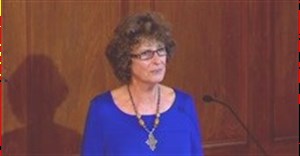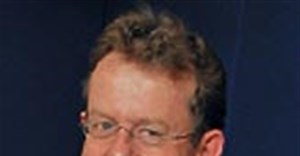
Subscribe & Follow
Jobs
- Advertising Specialist - Get It Magazine Durban Durban
- Advertising Sales Executive Sandton
- Media Sales Specialist Johannesburg
- Media Buyer/Planner Rosebank
- Junior/Mid-Level Video Editor Johannesburg
- Personal Assistant and Project Coordinator to CEO Cape Town
- SEO and Content Creator Intern Cape Town
- Media - Sales Manager - Digital or Broadcasting Exp Essential or Both Johannesburg
- Head of Performance Marketing South Africa
- Journalist Intern Johannesburg
Primedia's Kuben Pillay: Radio active and talking digital

 So let's talk about your radio stations (94.7 Highveld Stereo and 702 Talk Radio in Johannesburg and 94.5 KFM and 567 Cape Talk in Cape Town). How are they doing?
So let's talk about your radio stations (94.7 Highveld Stereo and 702 Talk Radio in Johannesburg and 94.5 KFM and 567 Cape Talk in Cape Town). How are they doing?Kuben Pillay: Radio still continues to the best and biggest part of our portfolio. A few things have changed since we delisted. We consolidated our interest in KFM and bought out minorities. We then properly started to position the portfolio in the two key economic regions - the Western Cape and Gauteng - and started to build what I call the ancillary brands around our radio brands, namely Eyewitness News and Prime Talent (a talent management unit for the radio stations' on-air talent) and, more importantly, our very powerful CSI brands - Crimeline and Lead SA. The CSI brands have by far exceeded all our expectations in terms of the impact on what people perceive to be the value proposition of the group.
(Click here for a diagram of all of Primedia's business with explanatory links.) I think (the CSI brands) have become one of the big influencers as to why people default to us as partners. I think it's beyond the fact that we represent such strong media brands - radio in particular... It's the stuff we do on a big scale with our CSI initiatives (that draws people in) which, unfortunately, citizens are finding lacking in the public broadcaster - which in any environment should be driving these types of initiatives.
 And listenership for your talk radio stations, 702 and Cape Talk, has never been better? (Recent RAMS data from Saarf shows that 702 has about 621 000 adult listeners while Cape Talk - which is AM rather than FM - has about 147 000. The SABC's SAfm current affairs and news station that has 540 000 listeners.)
And listenership for your talk radio stations, 702 and Cape Talk, has never been better? (Recent RAMS data from Saarf shows that 702 has about 621 000 adult listeners while Cape Talk - which is AM rather than FM - has about 147 000. The SABC's SAfm current affairs and news station that has 540 000 listeners.)Pillay: It's quite incredible how talk has come to the fore in our portfolio but then no one else has commercial talk in South Africa. In the last year, we've been overwhelmed by the growth that has come off the back of talk radio in particular. Audiences are at an all-time high... In a sense, South Africa will always have issues and there are always things to talk about. And we are an engaging type of population - we love hearing each others' views. We probably love hearing our own voices. But all of that being said, I think that talk radio is finding a particular niche with a regular base of listeners, certainly in our two geographic regions...
 Is it mostly high-LSM people listening to talk radio?
Is it mostly high-LSM people listening to talk radio?Pillay: Not necessarily. If you listen to 702 on a regular basis you will see the types of issues that regularly get flighted are very different from that on Cape Talk. It's a reflection of the particular environment but it cuts across the LSM profiles. On civic issues, we have people who call us from informal settlements. We have taxi drivers calling us and we have directors of companies who call us.
 But you guys - from 702 and Cape Talk to Eyewitness News - are also very strong on social networks. There's no one in South African media to touch you when it comes to how you use Twitter. (Check out Media Hack to see how Primedia presenters and journalist dominate the top of the list). That must help a lot.
But you guys - from 702 and Cape Talk to Eyewitness News - are also very strong on social networks. There's no one in South African media to touch you when it comes to how you use Twitter. (Check out Media Hack to see how Primedia presenters and journalist dominate the top of the list). That must help a lot.Pillay: Sure. But you know, in an environment that is so regulated in terms of your access to audience - which South Africa is in terms of the broadcasting regulations - it was really important for us to find every other avenue to communicate with the listener in terms of our content. Twitter and Facebook and all of the other personalities that drive communications, fortunately, turned us into a national brand when our licence limits us to two geographic regions. So if you take Crimeline - for which we have just celebrated the anniversary - it became a national issue, a national event... We do talk to a national audience. We position ourselves as if we were a national brand. We position Eyewitness News as a national brand and everyone takes our feed. The BBC takes our feed, for instance... We've had a really great year in broadcasting...
 And revenue-wise?
And revenue-wise?Pillay: Well, I'm not in the public domain so I don't disclose our revenue numbers but I can tell you that this year we've exceeded all records in terms of our broadcasting revenues.
 Can we talk about Highveld because that's a very big brand?
Can we talk about Highveld because that's a very big brand? Pillay: Ja, Highveld has always had its positioning and formula - and we have really not tampered with it too much other than, obviously, it was a big challenge when Jeremy Mansfield came off the morning show (in June 2010). People listened to him for 15 years and became accustomed to his voice so you're going to have that interim period when you have an unsettled audience... We've been through more than a year of that and I'm pleased to say that Darren Simpson's numbers are now higher than what Jeremy's were when he left. So we've come full circle and it is still by far the biggest contributor to our radio income and remains as strong as ever. It still talks to a very lucrative market. It really dominates that upper LSM Johannesburg market, which for any advertisers is the premium market. In the last five years we've also done a lot of cleaning up (across the group). We also had a lot of legacy businesses that came as a result of other acquisitions. For example, there was a small print business that never really fitted in...
 Was that magazines?
Was that magazines?Pillay: Yes, which we disposed of. We disposed of our Knowledge Factory business. We shut down our education business. We restructured our out-of-home (advertising) business. So we've been doing a lot of internal alignment and cleaning up of a portfolio, which over the years had really grown by acquisition. We are now starting to get the strategic positioning and the alignment of the business right... I can definitively say that we will list because that's the model. I can say definitively that we will list as company that is different to the one that delisted. A lot of it is going to revolve around the fact that we've expanded quite nicely into African territories on the back of our out-of-home business which we didn't really have as a critical-mass component when we delisted. Last year, we opened in Nigeria - that's probably the furthest north that we've moved.
 Is out-of-home the second biggest part of the business in terms of revenue?
Is out-of-home the second biggest part of the business in terms of revenue?Pillay: No, Ster-Kinekor.
 Really? That surprises me.
Really? That surprises me.Pillay: It has 65% market share in South Africa.
 I know cinema did well when recession first really struck (because it was an affordable night out compared with eating out, for instance). But I thought audiences might be tailing off by now.
I know cinema did well when recession first really struck (because it was an affordable night out compared with eating out, for instance). But I thought audiences might be tailing off by now.Pillay: We've always run a profitable movie chain. It is a cyclical business and it has the normal challenges that come with a stressed consumer and disposable income and all of those things... But we've never lost money in theatres. We've just committed to in excess of R100million to digitise our whole circuit in line with the rest of the world.
 I suppose you have to.
I suppose you have to.Pillay: Sure, or you're out of business. For the big commercial movies and for 3D in particular, you have to be digital.
 Is movies on demand not a threat to cinema?
Is movies on demand not a threat to cinema?Pillay: It shouldn't be. Take Madagascar 3 - your daughter wants to see it now because all her friends have seen it. She doesn't want to wait so you can order it on (DStv's) BoxOffice. Not everybody's prepared to wait... and movies are still the destination for teenagers to date... But there is a market for movies on demand... There may be an impact but we also supply the movies (to BoxOffice) through our distribution division.
 What's up with out-of-home advertising?
What's up with out-of-home advertising?Pillay: It's very critical to the group. Depending on which city you trade in and how it's regulated and policed, you have different environments. It's very hard to get a billboard approved in Cape Town and very easy, pretty much anywhere in Johannesburg... I do believe we're going to go through a cycle where we will have an inundation of offerings and players in the market - as we did 12 years ago.
 Why's that?
Why's that?Pillay: Because too many rights are being granted and it's diminishing the value of the property because public officials don't understand how media works. Media is supply and demand and it's also about limiting the number of mediums that you licence to keep the value proposition. So I think we will go through a cycle that will eventually result in consolidation and a clean-up again... Across each of the (Primedia business) silos, a common trend in terms of strategy is digital, whether in the radio environment or whether in terms of our outdoor - we're doing a lot more digital signage, for instance.
 So can you tell me when you might list? Are you waiting for market conditions to improve?
So can you tell me when you might list? Are you waiting for market conditions to improve?Pillay: Firstly, market conditions have to be conducive and they're not. There haven't been many listings. Secondly, we need to bed down all of the exciting things that we will be bringing to the market that is different in terms of our positioning. I can't put a date to it but I can tell you that it shouldn't be later than 2015.
 At least you're not in print?
At least you're not in print?
Pillay: And by choice. I've just been speaking to the staff and was asked if we're bidding for Independent (Newspapers). And I said: 'Why?' If you're moving into the electronic world the way we are, I'm not sure I'm wanting to own an asset where my single biggest input cost is a commodity called pulp, and where every day I have to watch the cost of paper as a major input to my business no matter how good my content is. It's not a business we understand anyway. This is our space and it's exciting. It's got energy about it. It's also instantaneous. The immediacy of radio is what I love.
For more:
- Bizcommunity: Primedia Online, Maroela forging into changing media landscape, June 2012
- Bizcommunity: Public is the star of radio, says 702's Chris Gibbons, June 2012
- Bizcommunity: Less of Abramjee's petitions, more "Metrorail Diaries"-style campaigns, please, May 2012
- Journalism.co.za: New radio players set to shake up major markets, March 2012
- Bizcommunity: Kagiso Media quietly poised to take off in Gauteng radio, October 2011














